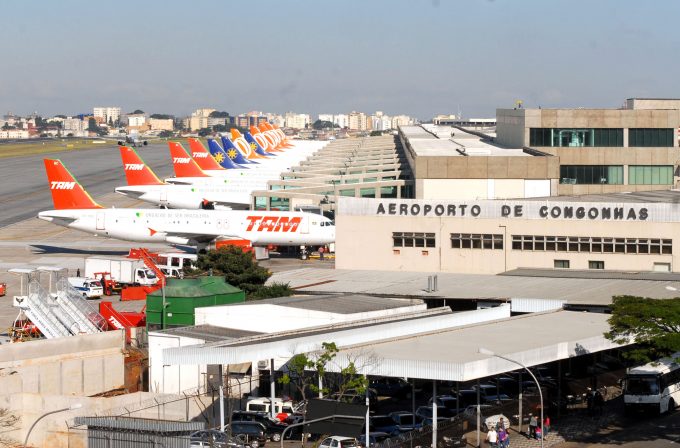UPS drama – a Premium back and forth on key bits and pieces
Network power
TFII: SOLID AS USUALMAERSK: WEAKENINGF: FALLING OFF A CLIFFAAPL: 'BOTTLENECK IN MAINLAND CHINA'AAPL: CHINA TRENDSDHL: GROWTH CAPEXR: ANOTHER SOLID DELIVERYMFT: HERE COMES THE FALLDSV: LOOK AT SCHENKER PERFORMANCEUPS: A WAVE OF DOWNGRADES DSV: BARGAIN BINKNX: EARNINGS OUTODFL: RISING AND FALLING AND THEN RISING
TFII: SOLID AS USUALMAERSK: WEAKENINGF: FALLING OFF A CLIFFAAPL: 'BOTTLENECK IN MAINLAND CHINA'AAPL: CHINA TRENDSDHL: GROWTH CAPEXR: ANOTHER SOLID DELIVERYMFT: HERE COMES THE FALLDSV: LOOK AT SCHENKER PERFORMANCEUPS: A WAVE OF DOWNGRADES DSV: BARGAIN BINKNX: EARNINGS OUTODFL: RISING AND FALLING AND THEN RISING

Aeronaves TSM, the aviation arm of Mexican expedited trucking firm Grupo TSM, is turning into the largest operator of CRJ200 freighters in North America, if not the world, according to Grupo TSM president Hugh Cutler.
The carrier is poised to receive its sixth CRJ200F in October, with more likely to follow.
Mr Cutler said the aircraft, which can take eight 61.5in by 88in pallets or containers, is close in terms of take-off weight to Aeronaves’ DC-9s and could replace some of these in the long run, but for now they are brought into service primarily to expand capacity.
“There’s a large number of 200s coming off leases. It looks like the right plane for us,” Mr Cutler said.
Aeronaves, which was established in 1995 and is based at Saltillo, has some smaller aircraft for passenger charters, but the majority of its fleet is made up of freighters – a mix of CRJ200s, MD-80s and DC-9s, plus smaller Metroliners and Convair 640s.
The lion’s share of the carrier’s business is linehaul for integrators. It operates the intra-Mexico air network of DHL and runs half a dozen scheduled flights a night for FedEx and UPS. This absorbs about 70% of the fleet, leaving the rest to perform ad hoc charter work.
According to Mr Cutler, Aeronaves runs 15-25 on-demand charters a day, which makes it far and away the largest operator in Mexico. Most of these flights cater for the auto industry, which has been showing robust and growing demand in recent years.
It remains to be seen how the rhetoric on US-Mexico trade and tariffs will pan out and what the ramifications will be for automotive supply chains, but at this point the industry’s demand for charters remains buoyant. Mr Cutler said a lot of dynamics seem to going on in the industry involving all three NAFTA countries.
And another promising market beckons. Aeronaves parent TSM, which has also enjoyed growth on the expedited trucking side, is looking at e-commerce as another potential vehicle for growth. With its expedited trucking operation plus its freighter fleet, the company is a logical object of interest for e-commerce platforms with the Mexican market in their sights.
“We are in discussions with some of the major e-commerce players for Mexico,” Mr Cutler said, adding that some of these talks involved both air and surface components.
Fuelled largely by the automotive sector, but also by the aerospace industry, international airfreight flows into Mexico have been going strong. Citing growth in the aerospace vertical, Panalpina mounted weekly dedicated B747-8F flights to Queretaro in May, its third destination in Mexico besides Mexico City and Guadalajara.
The following month, German forwarder Senator International launched a dedicated weekly freighter between Frankfurt-Hahn and Queretaro with B747-400F equipment. Much of the cargo on that flight is machinery and equipment for a new BMW plant under construction in nearby San Luis Potosi, which is scheduled to open next year. Senator indicated that it may add a second weekly Mexico frequency.
One obstacle to expansion of capacity into Mexico is the capital’s chronically congested Benito Juarez Airport, which operators have described as a nightmare.
The outgoing Mexican administration had drawn up plans for a new airport to serve Mexico City, but the tender process was suspended indefinitely last month. The new president voiced reservations about the project during the election campaign.
The doubts over the capital’s airport do not faze Aeronaves, however. It uses nearby Toluca Airport to serve Mexico city, Mr Cutler said.
Comment on this article